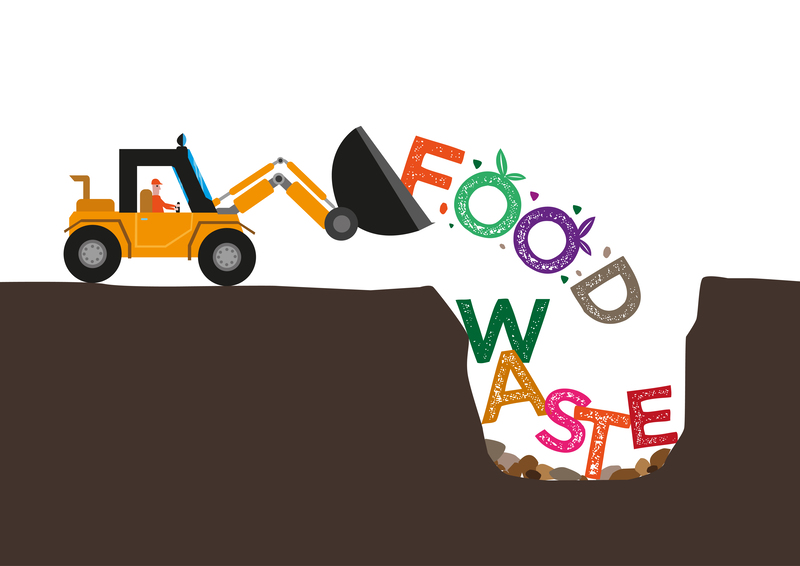Effective Strategies to Cut Down on Green Waste
Green waste, often referred to as organic waste, includes garden waste, food scraps, and other biodegradable materials. **Reducing green waste** is essential for environmental sustainability and effective waste management. In this comprehensive guide, we will explore various strategies to minimize landfill contributions and promote composting and recycling practices.
Understanding the Importance of Managing Green Waste
Green waste is a significant component of urban waste. *Proper disposal and management* of this waste stream not only help reduce landfill mass but also contribute to generating valuable compost for gardens and landscapes. By implementing effective strategies to cut down on green waste, we can aid in the reduction of greenhouse gases, foster soil health, and encourage recycling habits.
1. Composting: A Natural Solution
**Composting** is a natural and sustainable method of turning green waste into nutrient-rich compost.
- Create a Compost Bin: Set up a compost bin in your backyard or consider indoor composting solutions if space is limited. This enables you to recycle kitchen waste, leaves, and grass clippings.
- Understand the Balance: Effective composting requires balancing "greens" (nitrogen-rich materials like fruit peels and coffee grounds) and "browns" (carbon-rich materials like dried leaves and cardboard).
- Use Compost Accelerators: These products can aid the decomposition process by providing necessary bacteria or fungi, accelerating waste breakdown.
2. Implementing a Green Waste Collection Program
Many municipalities offer green waste collection services that support sustainable waste management.
- Utilize Local Services: Participate in community green waste pickup programs. This ensures that organic waste is properly treated and composted in municipal facilities.
- Advocate for Curbside Recycling: Encourage local councils to introduce curbside green waste bins, making it easier for residents to dispose of organic waste responsibly.
3. Grasscycling: A Simple Lawn Care Practice
Grasscycling involves leaving grass clippings on your lawn after mowing to decompose naturally, providing essential nutrients back into the soil.
- Regular Mowing: Maintain frequent mowing to ensure clippings do not overwhelm the lawn, facilitating quicker decomposition.
- Use Mulching Mowers: These mowers are designed to finely chop grass, making it easier for your lawn to absorb clippings efficiently.
4. Embrace Zero Waste Gardening
Adopting *zero waste gardening* techniques can significantly cut down on green waste while enhancing plant health.
- Practice Sheet Mulching: Use organic material layers such as cardboard and compost to control weeds and improve soil fertility effortlessly.
- Plan Your Garden Layout: Avoid over-planting by designing garden layouts that maximize space and reduce excess plants that might be thrown away.
5. Creative Reuse and Recycling Ideas
Many so-called waste materials can be repurposed or recycled, reducing the need to dispose of them.
- DIY Projects: Use dried flowers for crafts or decoupage projects, and turn vegetable scraps into homemade vegetable broth.
- Upcycle Garden Waste: Transform old branches and twigs into mulch or garden edging for practical uses.
6. Educate and Involve the Community
Community involvement is crucial in tackling green waste issues effectively. _Sharing information_ and resources among community members can lead to more comprehensive waste management strategies.
- Host Workshops: Organize community workshops on composting or waste reduction to encourage local action.
- Create Online Platforms: Utilize social media or community websites to share tips, experiences, and support regarding green waste reduction efforts.
Conclusion
Effective management and reduction of green waste necessitate a multifaceted approach, incorporating composting, recycling, community action, and creative reuses of organic materials. By implementing these effective strategies, you can contribute significantly to a healthier environment and more sustainable practices. Start today and join the movement towards reducing green waste and enhancing our planet's well-being.
Remember, every small step counts. Whether you are transforming your kitchen scraps into compost or actively participating in local green waste programs, your efforts form the foundation of a more sustainable future.

